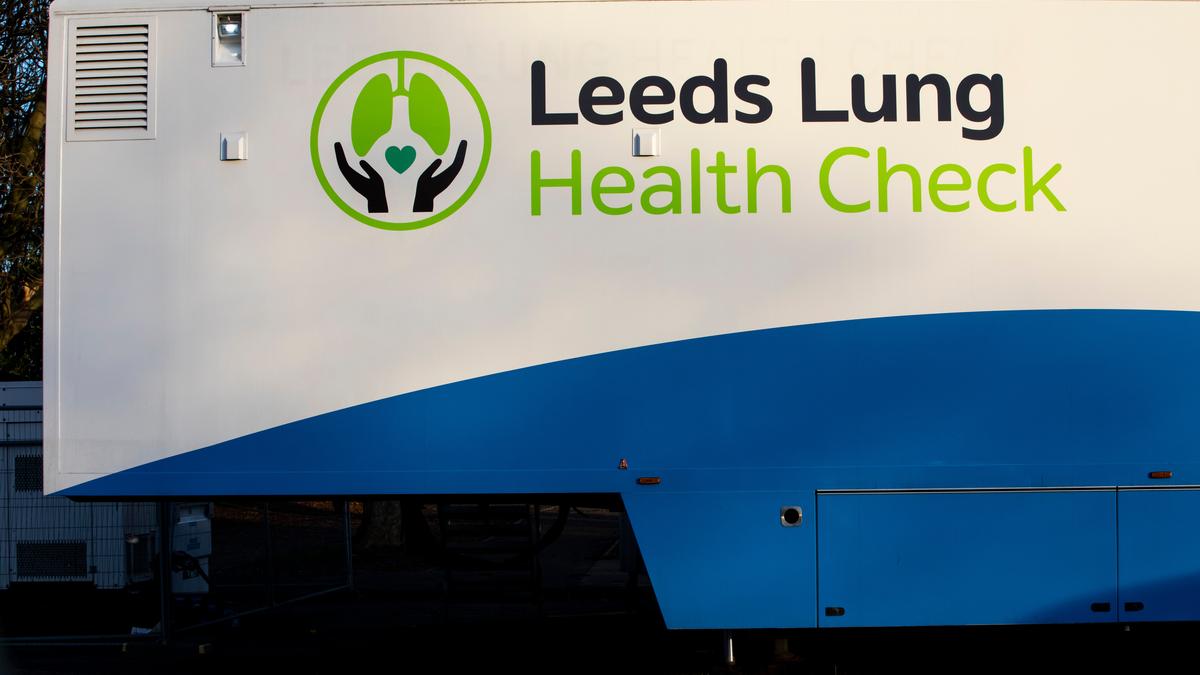
Thousands of lives could be saved from lung cancer if targeted screening programmes for the disease were introduced in Scotland, Wales and Northern Ireland, a cancer charity has said.
An analysis by Cancer Research UK has concluded that, if the devolved nations followed England’s example in implementing the UK National Screening Committee’s recommendation to offer screening to all those at the highest risk of the disease, this could make a real difference.
The committee has recommended that targeted lung checks should be offered to people aged between 55 and 74 who either smoke or used to smoke. Its plan is to reach 40% of this group by March 2025 and 100% by March 2030.
The Cancer Research UK calculations suggest equivalent lung cancer screening programmes could diagnose around 4,000 more lung cancer patients in Scotland at an early stage (stage 1 or 2) over the next decade, as well as 2,400 more people in Wales and 1,400 in Northern Ireland.
Even if just 50% of eligible people took part in such screening, earlier lung cancer diagnosis could save 2,300 lives in Scotland, 1,000 lives in Wales and 600 lives in Northern Ireland over the next 10 years, it added.
The charity is therefore calling for devolved governments to commit to urgently implement such lung cancer screening programmes.
Scotland, it has highlighted, is currently piloting lung cancer screening through its ‘LUNGSCOT’ project in the NHS Lothian health board area.
New funding from the Scottish Government will see people at high risk of lung cancer in the Grampian, Greater Glasgow and Clyde, Highlands and Islands regions also invited for a lung check over the coming months.
The aim of the study is to provide evidence to inform the implementation of a screening programme in Scotland. It is looking at areas including recruitment, uptake, NHS capacity, access in rural and remote communities, and the impact on health inequalities.
Professor David Weller, from the University of Edinburgh and principal investigator on the study, said: “For too long, lung cancer has been perceived as a disease you can’t do anything about, but we know that diagnosis at an early stage really can make a difference.
“Major trials of targeted lung cancer screening show significant reductions in mortality from lung cancer. Pilot studies in the UK and internationally consistently show people being diagnosed with lung cancer at an earlier stage.”
In the first phase of England’s Targeted Lung Health Check programme more than 2,000 people were detected as having lung cancer. Three-quarters (76%) of those lung cancers were caught in their earlier stages, compared with 29% of the lung cancers detected outside of the programme.
Professor Weller added that a nationwide screening programme “has the potential to be a game changer when it comes to reducing the burden of lung cancer in Scotland”.
The charity has also pointed out that Welsh health minister Eluned Morgan recently agreed to scoping work, which will assess how targeting lung screening could be developed in Wales. This, it has argued, “is a positive step”, albeit not a firm commitment to a national rollout.
Currently, Wales is only running a small lung health check pilot in Cwm Taf Morgannwg University Health Board.
Alongside other health charities, Cancer Research UK has therefore helped to launch a public petition calling for lung cancer screening to be made available across Wales. If the petition reaches 10,000 signatures, the introduction of screening will be considered for a debate in the Senedd.
There are as yet no confirmed plans in Northern Ireland, which has not had an executive in place to agree to a programme since the last election in May 2022.
Urinals cancer awareness campaign
Separately, NHS England is rolling out a health awareness campaign based around placing blood in pee cancer warnings on urinal mats in public places in England.
The earlier diagnosis drive has brought together NHS England and P-Wave, a urinal products brand, to put the message “Blood in your pee? Contact your GP practice” on urinal mats in thousands of men’s toilets across the country.
Pubs, restaurants, shops, hotels and sports stadiums will be among the public places using the mats, with men’s workplaces also targeted.
Passing blood in pee – even just once – is a common symptom for bladder, kidney or prostate cancers, which are all among the 10 most prevalent cancers in the country, and generally affect men more than women, NHS England has highlighted.
Other common symptoms for bladder, kidney or prostate cancer include peeing very often, sudden urges to pee or a burning sensation when you pee, difficulty peeing, a lump or swelling in your back, under your ribs, or in your neck, or pain in the side between the ribs and the hip.
The NHS push comes alongside a survey that found nearly half of men (46%) thought blood in pee was not a symptom of cancer. And two-fifths (39%) of men surveyed said they would wait until they’ve noticed blood in their pee multiple times before seeing a GP.
Most men (71%) also said they would be more likely to contact their GP practice if they saw messaging on a urinal mat and were experiencing blood in their pee, the NHS England research concluded.
Stay connected with us on social media platform for instant update click here to join our Twitter, & Facebook
We are now on Telegram. Click here to join our channel (@TechiUpdate) and stay updated with the latest Technology headlines.
For all the latest Health News Click Here
For the latest news and updates, follow us on Google News.
